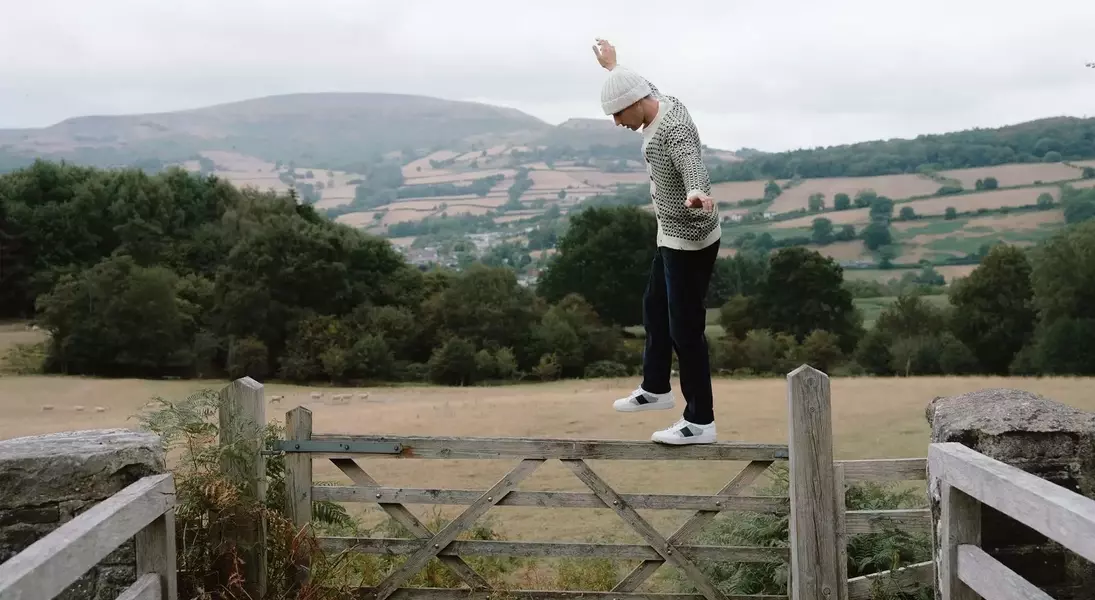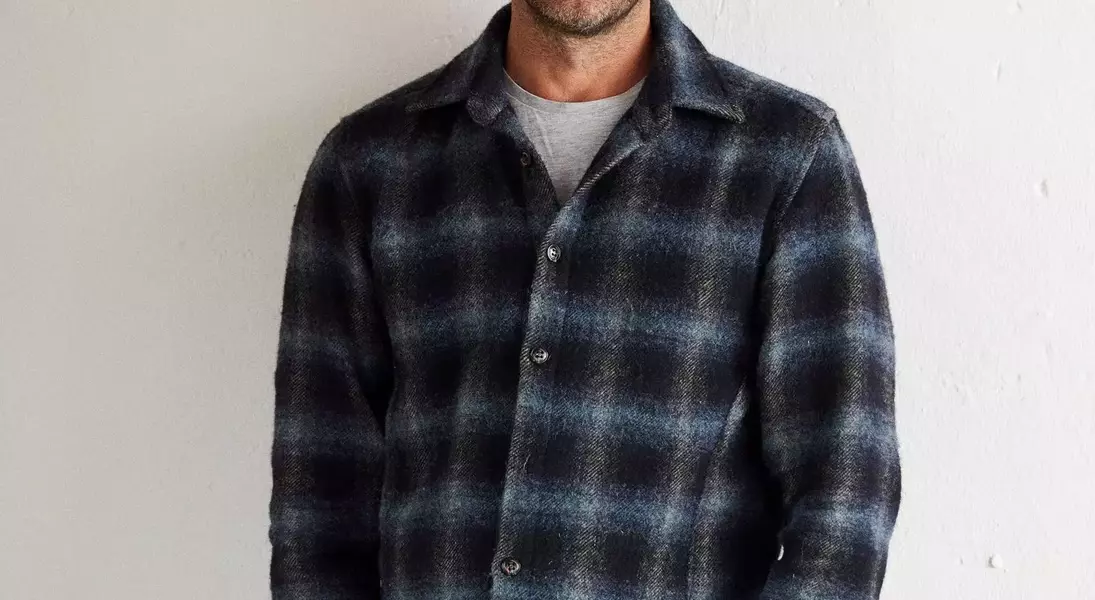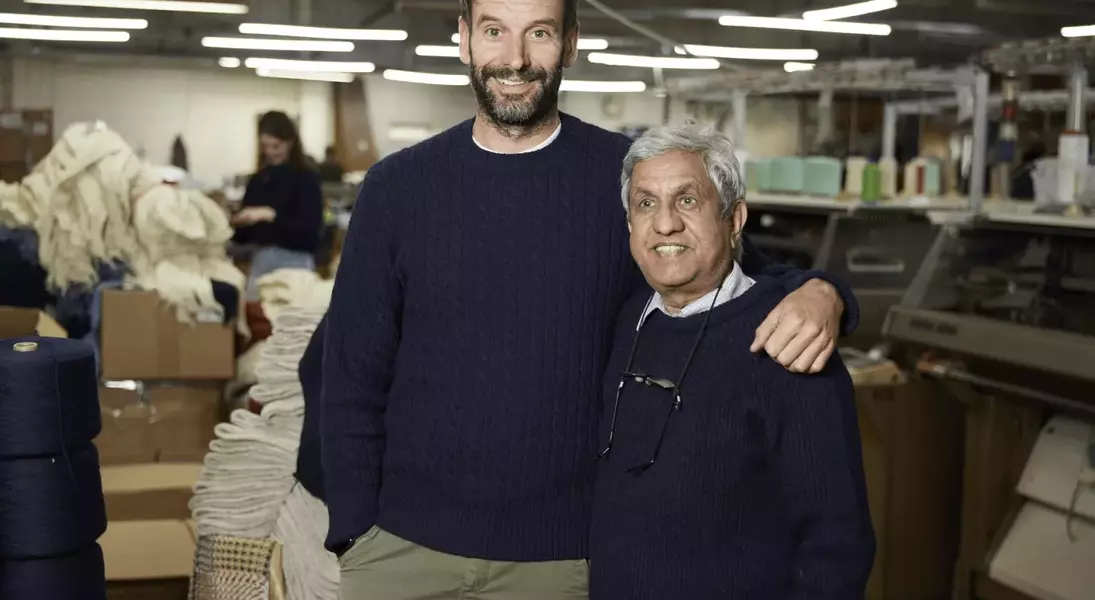






Peregrine Clothing, a venerable British brand with a rich history spanning over two centuries, is making waves in the fashion industry by steadfastly adhering to its roots in local manufacturing and the exclusive use of British wool. Under the leadership of managing director Tom Glover, the company champions a philosophy deeply embedded in sustainability and ethical production. Glover highlights the distinctive, earthy character of British wool, sourced and processed within a 300-mile radius of their Manchester factory, ensuring both quality and a reduced carbon footprint. This commitment extends beyond mere product creation; it’s about nurturing a modern textile ecosystem that prioritizes skilled labor, environmental responsibility, and a strong sense of community, even in the face of contemporary challenges like fluctuating market demands and global economic shifts. Peregrine's journey reflects a dedication to preserving heritage craftsmanship while navigating the complexities of modern commerce, aiming for a future where tradition and innovation coexist harmoniously.
Tom Glover, an 18th-generation leader of a family business established in 1796, proudly showcases Peregrine's signature cable-knit fisherman's jumper. He describes it as the 'Rolls-Royce of jumpers,' made from 1.1 kilos of pure British wool. This exemplifies the brand's core values: exceptional quality achieved through local production. Every step, from shearing to spinning, occurs within a tight geographical loop, fostering a unique product character that distinguishes it from mass-produced items. Glover stresses that this approach ensures not only superior quality but also an authentic connection to the raw materials, offering a product that boasts both personality and a story.
The British wool industry has seen a remarkable resurgence after a period of decline. Previously, low prices led some farmers to discard fleeces, as the cost of shearing exceeded their market value. However, a dedicated movement has gradually elevated British wool's profile, particularly in outerwear and men’s fashion. Glover appreciates the 'melange-y' and authentic feel of British wool, noting its earthy tones that set it apart from the uniformly dyed Italian knits. This distinctiveness is what Peregrine capitalizes on, selling products imbued with character and a genuine connection to their origins. The Campaign for Wool, initiated by King Charles III, has further bolstered this revival, leading to a significant increase in demand and a nine-year high in auction prices for British wool.
Peregrine's commitment to UK manufacturing and materials positions it at the forefront of the burgeoning 'place-based fashion' movement. This concept advocates for brands to utilize local fibers, skills, and landscapes, minimizing reliance on global, often extractive, supply chains. Glover believes this represents the next frontier in fashion, offering a pathway to reduce carbon emissions and restore local ecosystems. While this model entails higher costs and commercial constraints compared to mainstream fashion, Peregrine, driven by its principles, embraces these challenges. Glover explains that manufacturing in the UK supports local employment, drastically cuts carbon footprint by keeping production within 60 miles, and allows for meticulous quality control. This hands-on approach ensures a superior product and upholds the brand’s integrity.
Despite its rich heritage and clear mission, Peregrine recently stepped into the unexpected spotlight through a Google Gemini campaign. Tom Glover appeared in a social media advertisement and on large billboards across the UK, a surprising juxtaposition of AI technology with a brand dedicated to traditional craftsmanship. Glover viewed this as a valuable brand exposure opportunity rather than an endorsement of an AI-driven future, remaining ambivalent about AI’s broader impact on manufacturing. He acknowledges its utility for administrative tasks but believes it falls short in addressing the fundamental challenges faced by manufacturers, prioritizing investments in physical infrastructure like new knitting machines over digital tools.
Peregrine's story began with Thomas Glover in 1796, manufacturing jumpers on hand-frame knitting machines. The business evolved, becoming J G Glover & Co by 1901 and expanding significantly before contracting in the 1980s due to offshoring trends. Tom's grandfather, Donald Glover, introduced the Peregrine brand in 1956. Tom himself revived the brand in 2003 after graduating, initially selling jumpers from his car. In 2012, he and business partner Surinder Gupta acquired the Manchester factory, solidifying their production base. Today, Peregrine boasts a £3.6 million turnover, predominantly in menswear, and is recognized globally through stockists like Selfridges and Le Bon Marché.
Rebuilding the business from scratch, Glover drew inspiration from his childhood in Leicester, witnessing the collapse of the local textile industry. This experience ignited his passion for 'made in England' production, with 97% of Peregrine's offerings manufactured domestically. Exceptions, such as cotton shirts produced in Portugal, highlight the practical limitations, particularly post-Brexit, which has made importing certain fabrics too costly for UK production. Despite these hurdles, Peregrine earned a King’s Award for Enterprise for its 27% export growth over three years, demonstrating resilience in international markets. Navigating challenges like Trump-era import tariffs, Glover absorbed costs to maintain competitiveness, showcasing his dedication to supporting retailers like Nordstrom and preserving market access.
Looking ahead, Peregrine aims to solidify its niche in the menswear market, where appreciation for provenance and natural fibers is on the rise. The brand's marketing strategy emphasizes local manufacturing, traceable materials, and the human element behind its products, featuring factory photography and worker profiles. Glover understands the profound responsibility of being an employer and sustaining British manufacturing against economic odds, balancing heritage with modern business viability. This complex balancing act is evident in their gradual integration of regeneratively farmed British wool, despite the commercial impracticalities of a fully regenerative collection. Glover views this as a responsible, incremental transition, critiquing past industry failures to genuinely support English manufacturing through scalable solutions rather than isolated, PR-driven capsule collections.
Peregrine is committed to deepening its relationships with farmers embracing regenerative agriculture, a key focus for 2026. Glover acknowledges the brand's role in this transition and seeks ways to support the evolving industry. He also underscores the critical need for government intervention, advocating for targeted investments in infrastructure to rebuild a robust, contemporary textile ecosystem. He envisions a model where the government co-invests in vertical factories and large-scale processing facilities, enabling raw materials like wool to move through the supply chain at commercially viable volumes. Glover firmly believes that with the right support, the textile industry can thrive once more, moving beyond the 'cottage industry' perception to become a profitable and sustainable sector.
